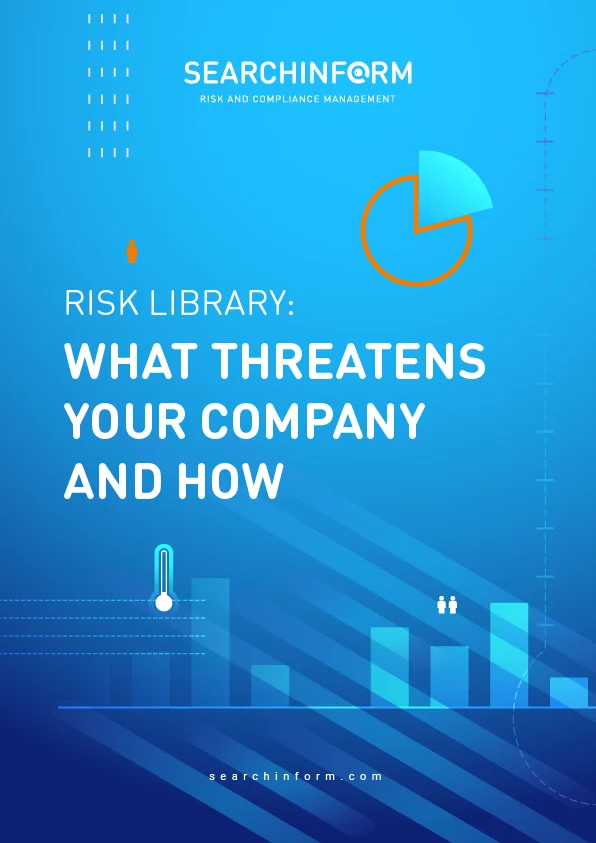Unraveling the Complexity of ePHI
What Is ePHI: Definition and Significance
ePHI stands for "electronic Protected Health Information." It refers to any individually identifiable health information that is stored, transmitted, or maintained electronically. This includes information related to an individual's past, present, or future physical or mental health condition, healthcare provision, or payment for healthcare services. ePHI encompasses a wide range of data, including medical records, lab results, imaging studies, prescriptions, and other personal health information stored in electronic form.
The significance of ePHI lies in its role in modern healthcare delivery and management. With the widespread adoption of electronic health records (EHRs) and other digital health technologies, ePHI has become the backbone of healthcare information management systems. It facilitates the efficient exchange of health information among healthcare providers, insurers, and patients, leading to improved care coordination, better clinical decision-making, and enhanced patient outcomes.
However, the electronic nature of ePHI also poses significant challenges in terms of privacy and security. Protecting ePHI is critical to maintaining patient trust, complying with regulatory requirements such as the Health Insurance Portability and Accountability Act (HIPAA) in the United States, and mitigating the risk of data breaches and unauthorized access. Security measures such as encryption, access controls, audit trails, and regular risk assessments are essential to safeguarding ePHI and ensuring its confidentiality, integrity, and availability. Violations of ePHI security can result in severe legal and financial consequences for healthcare organizations, as well as reputational damage. Therefore, understanding and effectively managing ePHI is essential for all stakeholders involved in healthcare delivery and information management.

Types of ePHI data
ePHI data encompasses various types of health information that are stored, transmitted, or maintained electronically. Some common types of ePHI data include:
- Medical Records: These contain comprehensive information about an individual's medical history, including diagnoses, treatments, medications, allergies, and immunizations.
- Laboratory Results: Data from diagnostic tests, such as blood tests, urine tests, biopsies, and imaging studies (e.g., X-rays, MRIs, CT scans), are considered ePHI. This information is crucial for diagnosing and monitoring medical conditions.
- Prescriptions and Medication Information: Details about prescribed medications, dosage instructions, refill information, and medication allergies fall under ePHI. This data helps healthcare providers ensure safe and effective medication management.
- Billing and Insurance Information: Electronic records related to healthcare billing, insurance claims, and payment processing contain sensitive ePHI, including patient demographics, insurance policy details, and financial transactions.
- Patient Demographics: Basic demographic information such as name, date of birth, address, phone number, and social security number is considered ePHI. This data is used to identify patients and manage their healthcare records.
- Treatment Plans and Care Summaries: Information about planned medical treatments, care plans, discharge summaries, and care coordination activities are categorized as ePHI. These records help healthcare providers coordinate care and track patient progress over time.
- Health Monitoring Data: Data generated from wearable devices, remote monitoring systems, and mobile health applications, such as heart rate, blood pressure, glucose levels, and activity tracking, constitute ePHI. This information enables remote patient monitoring and facilitates proactive healthcare interventions.
- Genetic Information: Information related to genetic testing, family history, and predisposition to certain medical conditions is considered ePHI. Genetic data plays a crucial role in personalized medicine and risk assessment for hereditary diseases.
- Mental Health Records: Confidential information about mental health assessments, treatments, therapy sessions, and psychiatric diagnoses is included in ePHI. Protecting the privacy of mental health data is particularly important due to its sensitive nature.
- Communications and Correspondence: Electronic communications between healthcare providers, patients, and other entities, such as emails, secure messaging, and telehealth sessions, contain ePHI. Ensuring secure and encrypted communication channels is essential to protect sensitive health information during transmission.
These are just a few examples of the diverse types of data that fall under the category of ePHI. Safeguarding the confidentiality, integrity, and availability of ePHI is paramount to protect patient privacy and comply with regulatory requirements.
Legal and Regulatory Framework
The legal and regulatory framework surrounding ePHI (electronic Protected Health Information) is primarily governed by laws and standards aimed at ensuring the confidentiality, integrity, and availability of healthcare data. Here are some key components of this framework:
Health Insurance Portability and Accountability Act (HIPAA): HIPAA is a landmark legislation in the United States that sets the standards for protecting sensitive patient data. The HIPAA Privacy Rule establishes national standards for the protection of certain health information, including ePHI, held or transmitted by covered entities (healthcare providers, health plans, and healthcare clearinghouses) and their business associates. The Security Rule, on the other hand, outlines specific requirements for safeguarding electronic protected health information (ePHI), including administrative, physical, and technical safeguards.
Health Information Technology for Economic and Clinical Health Act (HITECH): HITECH Act, enacted as part of the American Recovery and Reinvestment Act of 2009, expanded HIPAA's privacy and security provisions. It introduced new requirements concerning breach notification, increased penalties for HIPAA violations, and promoted the adoption of electronic health records (EHRs) and other health information technologies.
General Data Protection Regulation (GDPR): While primarily focused on data protection and privacy in the European Union, GDPR can have implications for organizations worldwide that handle the personal data of EU residents. GDPR imposes stringent requirements for the processing and protection of personal data, including health information. Organizations handling ePHI of EU residents must ensure compliance with GDPR's provisions regarding data protection, security, consent, and individual rights.
The Health Information Exchange (HIE) Standards and Interoperability: Various initiatives and standards aim to promote interoperability and the secure exchange of health information among different healthcare providers, systems, and stakeholders. These include standards such as HL7 (Health Level Seven), FHIR (Fast Healthcare Interoperability Resources), and Direct Project specifications, which facilitate the seamless exchange of ePHI while ensuring privacy and security.
State Laws and Regulations: In addition to federal laws like HIPAA and HITECH, individual states may have their own laws and regulations governing the protection and disclosure of health information. These laws may complement federal regulations or impose additional requirements on healthcare organizations operating within specific states.
Industry Standards and Best Practices: Various industry organizations and standards bodies develop guidelines, best practices, and frameworks for securing ePHI and ensuring compliance with regulatory requirements. Examples include the National Institute of Standards and Technology (NIST) Cybersecurity Framework, HITRUST (Health Information Trust Alliance) Common Security Framework, and ISO/IEC 27001 standards for information security management.
Compliance with these legal and regulatory requirements is essential for healthcare organizations to protect patient privacy, mitigate the risk of data breaches, and avoid legal and financial consequences associated with non-compliance. It requires implementing robust security measures, conducting regular risk assessments, training staff on privacy and security practices, and maintaining ongoing compliance efforts in the rapidly evolving landscape of healthcare technology and regulation.
Its discovery entails:
Challenges in ePHI Protection
Protecting ePHI (electronic Protected Health Information) presents several challenges for healthcare organizations due to the complex nature of healthcare systems, the evolving threat landscape, and regulatory requirements. Here are some key challenges:
Diverse IT Environments:
Healthcare organizations typically have heterogeneous IT environments with a mix of legacy systems, electronic health record (EHR) platforms, medical devices, and third-party applications. Integrating and securing these disparate systems while ensuring the protection of ePHI across the entire ecosystem can be challenging.
Cybersecurity Threats:
The healthcare industry is a prime target for cyberattacks due to the value of patient data and the critical nature of healthcare services. Threat actors continuously evolve their tactics, techniques, and procedures (TTPs) to exploit vulnerabilities and bypass security controls. Healthcare organizations must contend with a wide range of threats, including ransomware, phishing, malware, insider threats, and supply chain attacks.
Insider Threats:
Insiders, including employees, contractors, and business associates, pose significant security risks to ePHI. Insider threats may involve deliberate malicious actions, such as unauthorized access or data theft, as well as unintentional mistakes or negligence. Identifying and mitigating insider threats while preserving employee privacy and trust is a complex challenge for healthcare organizations.
Regulatory Compliance:
Healthcare organizations must comply with a complex web of regulations and standards governing the protection of ePHI, including HIPAA, HITECH, GDPR, and state privacy laws. Achieving and maintaining compliance requires robust policies, procedures, and controls for data security, privacy, breach notification, and risk management. Compliance efforts must be tailored to evolving regulatory requirements and enforced consistently across the organization.
Data Sharing and Interoperability:
The exchange of ePHI among healthcare providers, payers, and other stakeholders is essential for delivering coordinated care and improving patient outcomes. However, ensuring secure data sharing while maintaining patient privacy and confidentiality presents challenges related to data interoperability, standardization, consent management, and identity verification. Healthcare organizations must implement secure data exchange mechanisms and adhere to interoperability standards to facilitate seamless information sharing while protecting ePHI.
Resource Constraints:
Many healthcare organizations face resource constraints, including limited budgets, staff shortages, and competing priorities. Investing in cybersecurity infrastructure, personnel, and training may be challenging, particularly for small and medium-sized providers. Addressing cybersecurity challenges requires strategic allocation of resources, collaboration with external partners, and leveraging cost-effective solutions to enhance ePHI protection.
Emerging Technologies:
The adoption of emerging technologies, such as telemedicine, mobile health apps, Internet of Things (IoT) devices, and cloud computing, introduces new cybersecurity risks and complexities. These technologies expand the attack surface and may introduce vulnerabilities that threat actors can exploit to access ePHI. Healthcare organizations must implement robust security controls, conduct thorough risk assessments, and stay abreast of emerging threats associated with new technologies.
User Awareness and Training:
Human error and lack of cybersecurity awareness among healthcare employees can inadvertently expose ePHI to security risks. Healthcare organizations must prioritize employee training and awareness programs to educate staff about the importance of security best practices, such as strong password management, phishing detection, and secure data handling procedures.
Addressing these challenges requires a comprehensive approach to ePHI protection, encompassing technical controls, policy and procedure development, employee training, risk management, and regulatory compliance efforts. By adopting a proactive and holistic approach to cybersecurity, healthcare organizations can enhance the resilience of their information systems and safeguard the confidentiality, integrity, and availability of ePHI.

Role of SearchInform Solutions in ePHI Security
SearchInform Solutions plays a significant role in enhancing ePHI (electronic Protected Health Information) security by providing advanced data protection and insider threat management solutions tailored to the needs of various organizations, including healthcare organizations. Here are several ways SearchInform Solutions can contribute to ePHI security:
Data Loss Prevention (DLP): SearchInform Solutions offers DLP solutions that help healthcare organizations prevent unauthorized access, use, or disclosure of ePHI. These solutions employ content analysis, contextual detection, and policy enforcement mechanisms to monitor sensitive data in real-time, identify risky activities, and prevent data leaks or exfiltration attempts.
Insider Threat Detection: SearchInform Solutions utilize advanced analytics and behavior monitoring to detect insider threats within healthcare organizations. By analyzing user behavior, access patterns, and data usage activities, these solutions can identify anomalous or suspicious behavior indicative of insider threats, such as unauthorized access to ePHI, data copying, or data exfiltration attempts.
User Activity Monitoring: SearchInform Solutions enable healthcare organizations to monitor and audit user activities across their IT infrastructure, including endpoints, servers, databases, and applications. By tracking user interactions with ePHI, these solutions provide visibility into data access, modification, and transmission activities, helping organizations detect and investigate security incidents or policy violations.
Endpoint Security: SearchInform Solutions offer endpoint security solutions that protect devices such as desktops, laptops, from security threats. These solutions include features such as device encryption, application control, remote wipe, and endpoint detection and response (EDR), which help safeguard ePHI stored or accessed on endpoint devices and mitigate the risk of data leakages.
Threat Intelligence and Incident Response: SearchInform Solutions provide healthcare organizations with threat intelligence feeds, security alerts, and incident response capabilities to proactively identify and respond to security threats. By leveraging threat intelligence sources and security analytics, these solutions help organizations detect and mitigate cyber threats targeting ePHI, such as malware infections, phishing attacks, and ransomware incidents.
Compliance Management: SearchInform Solutions assist healthcare organizations in achieving and maintaining compliance with regulatory requirements related to ePHI security, including HIPAA, HITECH, GDPR, and other applicable laws and standards. These solutions offer compliance management features such as policy enforcement, audit trails, and reporting functionalities, helping organizations demonstrate adherence to security and privacy regulations.
Encryption and Data Masking: SearchInform Solutions provide encryption and data masking capabilities to protect ePHI both at rest and in transit. By encrypting sensitive data and implementing data masking techniques, healthcare organizations can ensure that ePHI remains confidential and secure, even if it is accessed or intercepted by unauthorized parties.
SearchInform Solutions play a crucial role in strengthening ePHI security by offering a comprehensive suite of solutions designed to address the unique security challenges. By implementing these solutions, healthcare organizations can enhance their ability to protect ePHI, mitigate insider threats, comply with regulatory requirements, and safeguard patient privacy and confidentiality.
Don't wait until it's too late. Partner with SearchInform to strengthen your ePHI security posture and protect your patients' data from insider threats and compliance risks!
Full-featured software with no restrictions
on users or functionality
Company news
SearchInform uses four types of cookies as described below. You can decide which categories of cookies you wish to accept to improve your experience on our website. To learn more about the cookies we use on our site, please read our Cookie Policy.
Necessary Cookies
Always active. These cookies are essential to our website working effectively.
Cookies does not collect personal information. You can disable the cookie files
record
on the Internet Settings tab in your browser.
Functional Cookies
These cookies allow SearchInform to provide enhanced functionality and personalization, such as remembering the language you choose to interact with the website.
Performance Cookies
These cookies enable SearchInform to understand what information is the most valuable to you, so we can improve our services and website.
Third-party Cookies
These cookies are created by other resources to allow our website to embed content from other websites, for example, images, ads, and text.
Please enable Functional Cookies
You have disabled the Functional Cookies.
To complete the form and get in touch with us, you need to enable Functional Cookies.
Otherwise the form cannot be sent to us.

Subscribe to our newsletter and receive a bright and useful tutorial Explaining Information Security in 4 steps!

Subscribe to our newsletter and receive case studies in comics!







